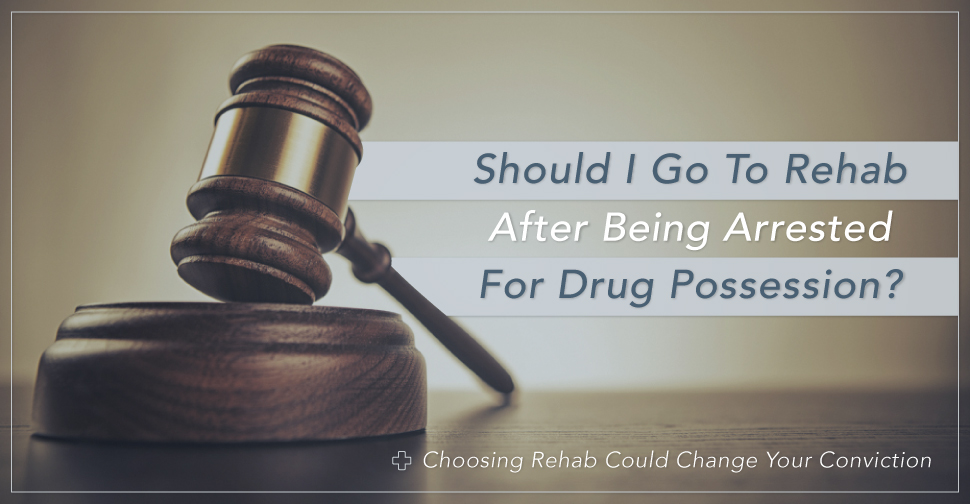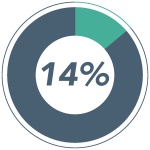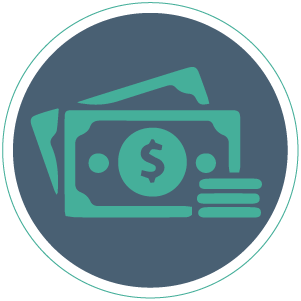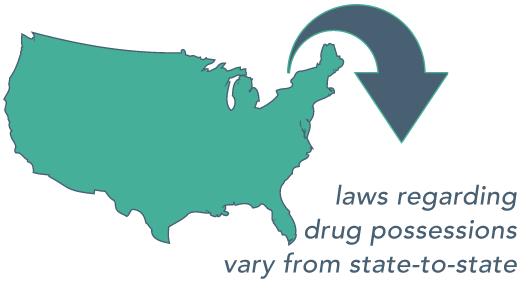
Drug use and abuse lends itself to a lifestyle that is plagued with behaviors, risks, dangers, and situations that can, in most cases, alter the course of a person’s life. Drug use not only brings a vast array of problems to a person’s physical and mental health, but presents challenges to the way in which one can function within his life and society as a greater whole.
Drug use and the repercussions that follow disrupts lives on many levels, including putting those who use at high risk for the legal ramifications that can result from this behavior.
 Every year, countless individuals across the United States are arrested for drug possession. According to the FBI’s annual Crime in the United States report, in 2014 the highest number of arrests “were for drug abuse violations.” Out of the 11,205,833 arrests in that year, they attributed an estimated 1,561,231 to this, which is nearly 14 percent of the total arrests for that year. Of this latter amount, 83.1 percent were due to cases of drug possession, which translates to roughly 1,297,383 arrests.
Every year, countless individuals across the United States are arrested for drug possession. According to the FBI’s annual Crime in the United States report, in 2014 the highest number of arrests “were for drug abuse violations.” Out of the 11,205,833 arrests in that year, they attributed an estimated 1,561,231 to this, which is nearly 14 percent of the total arrests for that year. Of this latter amount, 83.1 percent were due to cases of drug possession, which translates to roughly 1,297,383 arrests.
How Drug Charges Can Negatively Impact Your Life
Being arrested for drug charges isn’t a one time thing; this singular moment is likely indicative of a greater problem that can upset your life in ways that influence your personal, financial, vocational, and even educational standing or endeavors. If you’re convicted of drug-related crimes, depending on the sentence, you may have to disclose that information in a manner that can jeopardize your ability to retain your home, employment, or educational opportunities.
Drug charges may disrupt your family life, going through court proceedings and dealing with the resultant sentencing can be very stressful on every member of a family. The financial loss attributed to a drug possession charge can rack up fast, draining money that you need to provide for your family. If you’re in the midst of, or may experience custody proceedings at a point in the future, these charges may come into play.
The good news is, rehabilitation can not only offer you an avenue towards hope and recovery, but it can help to decrease the effects that your drug use has on your life and that of your loved ones.

The National Institute on Drug Abuse asserts that “Treatment offers the best alternative for interrupting the drug use/criminal justice cycle for offenders with drug problems.” Though this statement also encompasses people who have committed other offenses in addition to possession, it sums up what countless research illustrates: rehabilitation helps to keep people out of jail, while continuing to curtail their abuse and addiction.
Drug Charges Are A Serious Offense
Even offenses on the lower end of the spectrum can carry serious consequences, these include financial hardship due to fines and court costs, possible jail time, probation, drug screens, and mandatory counseling or attendance to support groups. Though the latter two may be helping in getting you help, and providing you with a venue by which to illustrate your commitment to turning things around, there is yet more you can do.

The exact nature of your drug charge may vary state-to-state, however, drug charges may take the form of a felony charge or a misdemeanor, the former being the more serious of the two.
One thing that is important through all of this, at every step of the way, is your attitude. Managing your emotions, demeanor, and actions, prior to and during your time in court can be of great benefit. We do understand that this may likely be an overwhelming time—as your life, in a capacity great or small, may be changing as a result of your arrest.
Even if it is the most minor of drug possession offenses, if you find yourself facing these charges, you need to take the situation seriously. If in your head it feels that the offense was minor or not a big deal, remember that any illicit drug use, including use of prescription drugs for non-prescriptive purposes, is enough in the eyes our judicial system to warrant court proceedings and possible prosecution.
The circumstances behind the actual drug possession may vary—a person may have only had a small amount that they use recreationally, they may have had prescription drugs that were not in their name that they were using to self-medicate valid health concerns, or they may be a habitual user who is in the throes of drug abuse or addiction. Any of these factors, as well as others, may influence sentencing.
Regardless of the situation that transpired into the arrest and/or subsequent charges, rehabilitation can be a good choice on two levels—first, it can help a person receive the help they need, and second, enrollment in a treatment program may help to alleviate some or even all of the charges they are faced with.
Choosing Rehab Could Change Your Conviction
It is important to realize that the laws regarding drug possessions vary from state-to-state. For this reason it is best to understand and be familiar with those that would be specific to your state and situation. In some cases, entering into a treatment facility may change the course of your conviction and punishment.
Keep in mind, when you sit before the judge, he is going to look at the scope of the situation, which includes any past drug charges. Illustrating to the judge both your willingness to change and your acknowledgement that what you did was wrong, by seeking and/or completing treatment, can help in some cases to have a more favorable outcome. In optimal circumstances, it may even reduce or delay your jail or prison time.

One way you can do this is to seek treatment before you ever step foot in the courtroom. If you, or your lawyer, can present to the judge that you have evaluated your life and the behavior and patterns that got you here, and that you are actively trying to change, your sentencing may in some way be altered. Do consider though, depending on the charges, you may be required to seek more treatment. Consider the benefit against the cost of this, weighing if it’s best to go before or after court.
Keep in mind, depending on the schedule of the court proceedings, you may not be able to seek the length of treatment that is optimal prior to trial. However, even attending outpatient treatment or a shorter duration of inpatient treatment in the interim, can be great preparation for further treatment down the road. This is on top of the fact it illustrates that you are accepting responsibilities for your actions and seeking to alter your behaviors. Depending on the time frame of the legal proceedings, if you are able to present to the judge that you have not only entered into treatment, but that you have successfully completed it, you may fare even better.
Don’t worry, if you don’t have time to enter treatment before the proceedings, you may still have options. In the case where the court may offer you rehabilitation as an option, or requirement (this is something your lawyer might be able to anticipate and advise you on), it can be wise to be preemptive and tell your lawyer or counselor that you want help, and also the judge when opportunity permits, this will be a testament of your readiness towards change.
How Do You Have The Option Of Rehab After An Arrest?
 When a person is faced with an arrest stemming from a drug possession, charges can vary—some people may have been arrested for small amounts of a controlled substance, whereas others may have been found in more severe circumstances, with larger amounts which in turn carry greater charges. Either situation could be indicative of a greater problem—in many cases the individual use is such that it would be considered abuse or addiction.
When a person is faced with an arrest stemming from a drug possession, charges can vary—some people may have been arrested for small amounts of a controlled substance, whereas others may have been found in more severe circumstances, with larger amounts which in turn carry greater charges. Either situation could be indicative of a greater problem—in many cases the individual use is such that it would be considered abuse or addiction.
Generally, if your possession charge was considered a non-violent offense, you will have three options that may allow you to seek treatment instead of jail time, these include:
- In a criminal court setting, the judge may include addiction treatment as a portion of your sentence.
- Before you even appear in court, your lawyer may speak to the prosecutor and work out an agreement that would consider a specific amount of time spent in rehab to fulfill the full or partial requirements of your punishment.
- You may be able to have your case heard in drug court instead of a criminal court, which will involve rehab.
When you’re faced with charges surrounding possession of a controlled substance, you can be assured that in most every case you will face some level of legal repercussions, the question is to what extent.
The sentencing will vary on numerous factors, including, but not limited to, the absence or presence of an addiction, the nature of the situation surrounding your arrest (including your level of intoxication, if any, and the amount of drugs that were confiscated), any prior convictions or history of arrest or charges stemming from drug use or possession, and the dynamic and arguments that arise between the prosecution and defense during the trial.
If you’re seeking to divert your sentencing to include treatment in place of a possible incarceration, either in part or full, or do these things as part of the sentence, there are certain factors that might weigh in on the judge’s decision and improve your chances. They include:
- If you suffer from a documented drug addiction
- If you or your lawyer can illustrate that your addiction influenced the actions that led to the crime and/or if you were under the influence when you committed the crime
- Your level of willingness and adherence to proposed or mandatory treatments
- If you have no prior offenses, or in some instances if this is only your second offense
- If your offense was nonviolent
- If you have no history of either violent or sexual-related offenses or charges
Some of these things may also be considerations for eligibility for entry into a drug court.
What Are Drug Courts?
Drug courts are different than criminal courts in the fact that they focus on getting a person treatment for their drug problems versus punishment. If a person is eligible for this alternative, and their case is seen in a drug court, they may obtain a reduced sentence or even dismissed charges. Throughout the process, which typically lasts six-months to a year, the individual is in regular communication with the court and those that work within it.
As explained by a report published by the Sentencing Project that explains drug courts and their efficacy, there are two ways in which a person will progress through this system. The first, deferred prosecution programs do not require a not-guilty plea, and in fact, the person enters the program before the point of even entering a plea. If they successfully complete the program, they face no further prosecution.
The second, post-adjudication programs requires that the defendant plead guilty, at which point their sentencing is forestalled until they complete the programs required by the drug court, upon completion, they may obtain “a waived sentence and sometimes an expungement of the offense.” In either instance, if they do not fulfill what the court required, they will return to criminal court and proceed with sentencing there.
The National Association of Drug Court Professionals defines an adult drug court as “A specially designed court calendar or docket, the purposes of which are to achieve a reduction in recidivism and substance abuse among nonviolent substance abusing offenders and to increase the offender’s likelihood of successful habilitation through early, continuous, and intense judicially supervised treatment, mandatory periodic drug testing, community supervision, and use of appropriate sanctions and other rehabilitation services.”
As reported by the the Multisite Adult Drug Court Evaluation (MADCE), an initiative between the National Institute of Justice (NIJ) and numerous groups of researchers that studied 23 adult drug courts against six comparison sites, “Drug Court participants were significantly less likely than the matched comparison offenders to relapse to drug use, and those who did relapse used drugs significantly less.” It also found a reduction in criminal activity and numerous psychosocial benefits. The most successful programs were found to be those that provided “A minimum of thirty-five days of formal drug-abuse treatment services.”
Despite the fact that they can be a good avenue for certain cases, they are unfortunately not an available option in every jurisdiction, however, the National Institute of Justice reported that in 2014, there were over 3,000 drug courts within the U.S, 1540 of which were for adults. If you think that this may be a good option for you, your attorney should be able to tell you if you are eligible, and if there is one in your area.
Does Mandatory Rehabilitation Work?
It is always good if a person chooses to seek rehabilitation on their own, this allows them the opportunity to walk into treatment with a mentality that is more open to change, however, research shows that individuals that are required to enter treatment still find success. UCLA published a study,
“The Effectiveness of Coerced Treatment for Drug-Abusing Offenders,” that reviewed 11 other published studies as a means to determine if mandatory, or coerced treatment is effective.
When reviewing one of the 11 studies, they found that “the study found that legally referred clients entered treatment earlier in their addiction career than would otherwise have been the case and that they stayed in treatment longer—both circumstances that are conducive to better outcome.”
Five of the studies illustrated benefits and success when the criminal justice system referred a person for treatment, four were neutral, and two were negative. Overall this study supported that notion that “legally referred clients do as well or better than voluntary clients in and after treatment” and that “In general, our review of 11 empirical studies of compulsory substance abuse treatment supports the use of the criminal justice system as an effective source of treatment referral, as well as a means for enhancing retention and compliance.”
Get Back On Track With Your Educational Goals
In addition to the benefit it might offer you during your sentencing, it can help you in other ways. We’ve discussed how a drug-related conviction can affect educational opportunities, one of the greatest is your ability to receive student loans.
The Office of National Drug Control Policy and the U.S. Department of Education issued a publication on FAFSA (Free Application for Federal Student Aid) that spoke of this, stating that “In general, if you are convicted of a drug-related felony or misdemeanor that took place while you were receiving Federal student aid, you will become ineligible to receive further aid for a specified period of time upon conviction.”
The good news is that this fact sheet noted that you can “shorten this period of ineligibility” by “Successfully completing an approved drug rehabilitation program that includes passing two unannounced drug tests.”
Don’t Let Your Drug Use Derail Your Life
Being confronted with the possibility of a conviction due to drug possession can be a very terrifying time. It can also be something that opens your eyes up to  the reality of the situation your living in, and the extent that your drug use is dictating your life. Don’t let this time pass you by without getting the help you need. Please, contact us—let us help you navigate these rough waters, our staff at DrugRehab.org is trained to answer any questions you might have about drug use and the dangers and damage it leaves in its wake.
the reality of the situation your living in, and the extent that your drug use is dictating your life. Don’t let this time pass you by without getting the help you need. Please, contact us—let us help you navigate these rough waters, our staff at DrugRehab.org is trained to answer any questions you might have about drug use and the dangers and damage it leaves in its wake.
Sources
Federal Bureau of Investigation – 2014 Crime in the United States: Persons Arrested
StoptheDrugWar.org – Feature: The Conviction That Keeps On Hurting — Drug Offenders and Federal Benefits
National Institute on Drug Abuse – Drug Addiction Treatment in the Criminal Justice System
Law Office of the Los Angeles County Public Defender – Frequently Asked Questions
Office of Diversion Control – Controlled Substances By CSA Schedule
Federation of American Scientists – Congressional Research Service, Drug Offenses: Maximum Fines and Terms of Imprisonment for Violation of the Federal Controlled Substances Act and Related Laws
The Sentencing Project – Drug Courts: A Review of the Evidence
Research to Practice – The Multisite Adult Drug Court Evaluation
Whitehouse.gov – FAFSA Facts
National Criminal Justice Reference System – The Effectiveness of Coerced Treatment for Drug-Abusing Offenders
National Institute of Justice – Drug Courts
National Association of Drug Court Professionals – Types of Drug Courts
